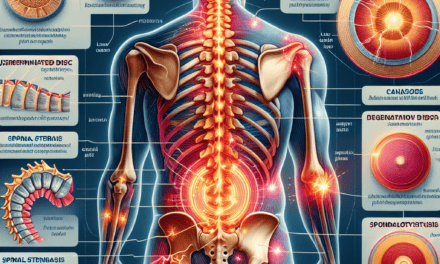NVIDIA AI Summit 2024: Advancing Healthcare Breakthroughs with ARPA-H

The NVIDIA AI Summit 2024 is set to be a landmark event in the intersection of artificial intelligence and healthcare. With the collaboration of ARPA-H, the Advanced Research Projects Agency for Health, this summit aims to explore and expand the boundaries of AI applications in healthcare. This article delves into the significant themes and discussions expected at the summit, focusing on how these innovations are poised to revolutionize healthcare delivery and outcomes.
1. The Role of AI in Modern Healthcare
Artificial intelligence has been a transformative force in various industries, and healthcare is no exception. The integration of AI into healthcare systems promises to enhance diagnostic accuracy, streamline operations, and personalize patient care. At the NVIDIA AI Summit 2024, experts will discuss the current state of AI in healthcare and its future potential.
1.1 AI-Driven Diagnostics
AI-driven diagnostics have become a cornerstone of modern healthcare, offering unprecedented accuracy and speed in identifying diseases. Machine learning algorithms can analyze medical images, such as X-rays and MRIs, with a precision that rivals human experts. This capability is particularly beneficial in detecting conditions like cancer, where early diagnosis is crucial for effective treatment.
For instance, a study published in the journal Nature demonstrated that an AI system developed by Google Health outperformed radiologists in detecting breast cancer from mammograms. The AI model reduced false positives and false negatives, highlighting its potential to improve diagnostic accuracy and patient outcomes.
- Improved accuracy in disease detection
- Reduction in diagnostic errors
- Faster processing of medical images
1.2 Personalized Medicine
Personalized medicine is another area where AI is making significant strides. By analyzing vast amounts of genetic data, AI can help tailor treatments to individual patients, increasing the efficacy of interventions and reducing adverse effects. This approach is particularly promising in oncology, where personalized treatment plans can significantly improve survival rates.
Pharmaceutical companies are leveraging AI to identify biomarkers and develop targeted therapies. For example, IBM Watson for Oncology uses AI to analyze patient data and recommend personalized treatment options, taking into account the latest research and clinical guidelines.
- Tailored treatment plans
- Increased treatment efficacy
- Reduction in adverse effects
1.3 Operational Efficiency
Beyond diagnostics and treatment, AI is also enhancing operational efficiency in healthcare settings. AI-powered systems can optimize scheduling, manage supply chains, and predict patient admissions, leading to more efficient use of resources and improved patient care.
For example, hospitals are using AI to predict patient flow and optimize staffing levels, ensuring that resources are allocated where they are needed most. This not only improves patient outcomes but also reduces costs and enhances the overall efficiency of healthcare delivery.
- Optimized scheduling and resource allocation
- Improved patient flow management
- Cost reduction in healthcare delivery
1.4 AI in Drug Discovery
AI is revolutionizing drug discovery by accelerating the identification of potential drug candidates and predicting their efficacy. Traditional drug discovery processes are time-consuming and costly, but AI can analyze vast datasets to identify promising compounds and predict their interactions with biological targets.
Companies like BenevolentAI and Atomwise are using AI to streamline drug discovery, reducing the time and cost associated with bringing new drugs to market. This approach not only speeds up the development of new treatments but also increases the likelihood of success in clinical trials.
- Accelerated drug discovery processes
- Reduced costs in drug development
- Increased success rates in clinical trials
1.5 Ethical Considerations in AI Healthcare
While AI offers numerous benefits, it also raises ethical considerations that must be addressed. Issues such as data privacy, algorithmic bias, and the potential for job displacement are critical concerns that need to be carefully managed.
At the NVIDIA AI Summit 2024, experts will discuss strategies for ensuring that AI is used ethically and responsibly in healthcare. This includes developing transparent algorithms, ensuring data privacy, and addressing potential biases in AI systems.
- Data privacy and security
- Addressing algorithmic bias
- Ensuring ethical use of AI in healthcare
2. ARPA-H: A Catalyst for Innovation
The Advanced Research Projects Agency for Health (ARPA-H) is a key player in driving innovation in healthcare. Modeled after the Defense Advanced Research Projects Agency (DARPA), ARPA-H aims to fund high-risk, high-reward research projects that have the potential to transform healthcare.
2.1 The Mission of ARPA-H
ARPA-H’s mission is to accelerate the development of breakthrough technologies and solutions that can address some of the most pressing challenges in healthcare. By funding innovative research projects, ARPA-H aims to bridge the gap between basic research and clinical application, bringing new treatments and technologies to patients faster.
ARPA-H focuses on several key areas, including precision medicine, infectious disease, and mental health. By supporting research in these areas, ARPA-H aims to drive significant advancements in healthcare delivery and outcomes.
- Accelerating breakthrough technologies
- Bridging the gap between research and application
- Focusing on key healthcare challenges
2.2 ARPA-H and AI Collaboration
The collaboration between ARPA-H and AI is a natural fit, as both aim to drive innovation and improve healthcare outcomes. By leveraging AI technologies, ARPA-H can accelerate the development of new treatments and solutions, bringing them to patients faster.
At the NVIDIA AI Summit 2024, experts will discuss how ARPA-H is using AI to advance its mission. This includes using AI to analyze large datasets, identify potential drug candidates, and develop personalized treatment plans.
- Leveraging AI for innovation
- Accelerating treatment development
- Improving healthcare outcomes
2.3 Case Studies: ARPA-H Success Stories
ARPA-H has already achieved significant success in advancing healthcare innovation. One notable example is its work in developing rapid diagnostic tests for infectious diseases. By funding research into AI-powered diagnostic tools, ARPA-H has helped bring new tests to market faster, improving patient outcomes and reducing the spread of disease.
Another success story is ARPA-H’s work in precision medicine. By funding research into AI-driven personalized treatment plans, ARPA-H has helped improve the efficacy of treatments and reduce adverse effects, leading to better patient outcomes.
- Rapid diagnostic test development
- Advancements in precision medicine
- Improved patient outcomes
2.4 The Future of ARPA-H and AI
The future of ARPA-H and AI is bright, with numerous opportunities for collaboration and innovation. By continuing to fund high-risk, high-reward research projects, ARPA-H can drive significant advancements in healthcare and improve patient outcomes.
At the NVIDIA AI Summit 2024, experts will discuss the future of ARPA-H and AI, exploring new opportunities for collaboration and innovation. This includes developing new AI-powered diagnostic tools, personalized treatment plans, and innovative therapies.
- Opportunities for collaboration
- Advancements in AI-powered diagnostics
- Innovative therapies and treatments
2.5 Challenges and Opportunities
While ARPA-H and AI offer numerous opportunities for innovation, they also face several challenges. These include securing funding for high-risk projects, ensuring data privacy and security, and addressing potential biases in AI systems.
At the NVIDIA AI Summit 2024, experts will discuss strategies for overcoming these challenges and maximizing the potential of ARPA-H and AI. This includes developing transparent algorithms, ensuring data privacy, and addressing potential biases in AI systems.
- Securing funding for high-risk projects
- Ensuring data privacy and security
- Addressing potential biases in AI systems
3. Transformative AI Technologies in Healthcare
The NVIDIA AI Summit 2024 will showcase a range of transformative AI technologies that are poised to revolutionize healthcare. These technologies promise to enhance diagnostic accuracy, streamline operations, and personalize patient care.
3.1 AI-Powered Imaging
AI-powered imaging is one of the most promising areas of AI in healthcare. By analyzing medical images with unprecedented accuracy and speed, AI can help detect diseases earlier and improve patient outcomes.
For example, AI algorithms can analyze X-rays, MRIs, and CT scans to detect conditions like cancer, heart disease, and neurological disorders. This capability is particularly beneficial in detecting conditions like cancer, where early diagnosis is crucial for effective treatment.
- Improved accuracy in disease detection
- Faster processing of medical images
- Early diagnosis of conditions
3.2 Natural Language Processing in Healthcare
Natural language processing (NLP) is another area where AI is making significant strides in healthcare. By analyzing unstructured data, such as clinical notes and patient records, NLP can help identify patterns and insights that can improve patient care.
For example, NLP can be used to analyze electronic health records (EHRs) to identify patients at risk of developing certain conditions. This capability can help healthcare providers intervene earlier and improve patient outcomes.
- Analyzing unstructured data
- Identifying patterns and insights
- Improving patient care
3.3 AI in Genomics
AI is also playing a crucial role in genomics, helping researchers analyze vast amounts of genetic data to identify potential drug targets and develop personalized treatment plans. This capability is particularly promising in oncology, where personalized treatment plans can significantly improve survival rates.
For example, AI can be used to analyze genetic data to identify biomarkers and develop targeted therapies. This approach not only speeds up the development of new treatments but also increases the likelihood of success in clinical trials.
- Analyzing genetic data
- Identifying potential drug targets
- Developing personalized treatment plans
3.4 AI in Robotics and Surgery
AI is also transforming the field of robotics and surgery, offering new opportunities for precision and efficiency. By integrating AI into surgical robots, healthcare providers can perform complex procedures with greater accuracy and control.
For example, AI-powered surgical robots can assist surgeons in performing minimally invasive procedures, reducing recovery times and improving patient outcomes. This capability is particularly beneficial in complex surgeries, where precision and control are crucial.
- Precision and efficiency in surgery
- Minimally invasive procedures
- Improved patient outcomes
3.5 AI in Remote Patient Monitoring
AI is also playing a crucial role in remote patient monitoring, helping healthcare providers track patient health and intervene earlier when necessary. By analyzing data from wearable devices and other sensors, AI can help identify potential health issues before they become serious.
For example, AI can be used to monitor patients with chronic conditions, such as diabetes or heart disease, and alert healthcare providers when intervention is needed. This capability can help improve patient outcomes and reduce healthcare costs.
- Tracking patient health remotely
- Identifying potential health issues early
- Improving patient outcomes
4. Case Studies: Real-World Applications of AI in Healthcare
The NVIDIA AI Summit 2024 will feature several case studies showcasing real-world applications of AI in healthcare. These case studies highlight the potential of AI to improve patient outcomes and transform healthcare delivery.
4.1 AI in Cancer Detection
AI is playing a crucial role in cancer detection, offering new opportunities for early diagnosis and improved patient outcomes. By analyzing medical images with unprecedented accuracy and speed, AI can help detect cancer earlier and improve patient outcomes.
For example, a study published in the journal Nature demonstrated that an AI system developed by Google Health outperformed radiologists in detecting breast cancer from mammograms. The AI model reduced false positives and false negatives, highlighting its potential to improve diagnostic accuracy and patient outcomes.
- Early diagnosis of cancer
- Improved diagnostic accuracy
- Reduced false positives and negatives
4.2 AI in Drug Discovery
AI is also playing a crucial role in drug discovery, helping researchers identify potential drug candidates and predict their efficacy. This capability is particularly beneficial in accelerating the development of new treatments and increasing the likelihood of success in clinical trials.
For example, companies like BenevolentAI and Atomwise are using AI to streamline drug discovery, reducing the time and cost associated with bringing new drugs to market. This approach not only speeds up the development of new treatments but also increases the likelihood of success in clinical trials.
- Accelerated drug discovery processes
- Reduced costs in drug development
- Increased success rates in clinical trials
4.3 AI in Personalized Medicine
AI is also playing a crucial role in personalized medicine, helping researchers develop tailored treatment plans for individual patients. This capability is particularly promising in oncology, where personalized treatment plans can significantly improve survival rates.
For example, IBM Watson for Oncology uses AI to analyze patient data and recommend personalized treatment options, taking into account the latest research and clinical guidelines. This approach not only improves the efficacy of treatments but also reduces adverse effects, leading to better patient outcomes.
- Tailored treatment plans
- Increased treatment efficacy
- Reduction in adverse effects
4.4 AI in Remote Patient Monitoring
AI is also playing a crucial role in remote patient monitoring, helping healthcare providers track patient health and intervene earlier when necessary. By analyzing data from wearable devices and other sensors, AI can help identify potential health issues before they become serious.
For example, AI can be used to monitor patients with chronic conditions, such as diabetes or heart disease, and alert healthcare providers when intervention is needed. This capability can help improve patient outcomes and reduce healthcare costs.
- Tracking patient health remotely
- Identifying potential health issues early
- Improving patient outcomes
4.5 AI in Mental Health
AI is also playing a crucial role in mental health, offering new opportunities for early diagnosis and improved patient outcomes. By analyzing data from electronic health records and other sources, AI can help identify patients at risk of developing mental health conditions and intervene earlier.
For example, AI can be used to analyze patient data to identify patterns and insights that can improve patient care. This capability can help healthcare providers intervene earlier and improve patient outcomes.
- Early diagnosis of mental health conditions
- Improved patient care
- Intervening earlier to improve outcomes
5. The Future of AI in Healthcare: Opportunities and Challenges
The future of AI in healthcare is bright, with numerous opportunities for innovation and improvement. However, there are also several challenges that must be addressed to maximize the potential of AI in healthcare.
5.1 Opportunities for Innovation
AI offers numerous opportunities for innovation in healthcare, from improving diagnostic accuracy to personalizing patient care. By leveraging AI technologies, healthcare providers can improve patient outcomes and transform healthcare delivery.
At the NVIDIA AI Summit 2024, experts will discuss the future of AI in healthcare, exploring new opportunities for innovation and improvement. This includes developing new AI-powered diagnostic tools, personalized treatment plans, and innovative therapies.
- Improving diagnostic accuracy
- Personalizing patient care
- Transforming healthcare delivery
5.2 Challenges to Overcome
While AI offers numerous benefits, it also raises several challenges that must be addressed. These include data privacy and security, algorithmic bias, and the potential for job displacement.
At the NVIDIA AI Summit 2024, experts will discuss strategies for overcoming these challenges and maximizing the potential of AI in healthcare. This includes developing transparent algorithms, ensuring data privacy, and addressing potential biases in AI systems.
- Data privacy and security
- Addressing algorithmic bias
- Ensuring ethical use of AI in healthcare
5.3 The Role of Policy and Regulation
Policy and regulation will play a crucial role in shaping the future of AI in healthcare. By developing clear guidelines and standards, policymakers can ensure that AI is used ethically and responsibly in healthcare.
At the NVIDIA AI Summit 2024, experts will discuss the role of policy and regulation in shaping the future of AI in healthcare. This includes developing clear guidelines and standards for the use of AI in healthcare, ensuring data privacy and security, and addressing potential biases in AI systems.
- Developing clear guidelines and standards
- Ensuring data privacy and security
- Addressing potential biases in AI systems
5.4 The Importance of Collaboration
Collaboration will be crucial to maximizing the potential of AI in healthcare. By working together, healthcare providers, researchers, and policymakers can drive innovation and improve patient outcomes.
At the NVIDIA AI Summit 2024, experts will discuss the importance of collaboration in maximizing the potential of AI in healthcare. This includes developing partnerships between healthcare providers, researchers, and policymakers to drive innovation and improve patient outcomes.
- Developing partnerships for innovation
- Improving patient outcomes through collaboration
- Driving innovation in healthcare
5.5 The Future of AI in Healthcare
The future of AI in healthcare is bright, with numerous opportunities for innovation and improvement. By leveraging AI technologies, healthcare providers can improve patient outcomes and transform healthcare delivery.
At the NVIDIA AI Summit 2024, experts will discuss the future of AI in healthcare, exploring new opportunities for innovation and improvement. This includes developing new AI-powered diagnostic tools, personalized treatment plans, and innovative therapies.
- Improving diagnostic accuracy
- Personalizing patient care
- Transforming healthcare delivery
Conclusion
The NVIDIA AI Summit 2024 promises to be a landmark event in the intersection of artificial intelligence and healthcare. With the collaboration of ARPA-H, this summit aims to explore and expand the boundaries of AI applications in healthcare. From AI-driven diagnostics to personalized medicine, the summit will showcase a range of transformative technologies that are poised to revolutionize healthcare delivery and outcomes.
By addressing the challenges and opportunities associated with AI in healthcare, the summit will provide valuable insights into the future of this rapidly evolving field. With the potential to improve diagnostic accuracy, personalize patient care, and transform healthcare delivery, AI is set to play a crucial role in shaping the future of healthcare.
As we look to the future, collaboration between healthcare providers, researchers, and policymakers will be crucial to maximizing the potential of AI in healthcare. By working together, we can drive innovation and improve patient outcomes, ensuring that AI is used ethically and responsibly to transform healthcare delivery and outcomes.





